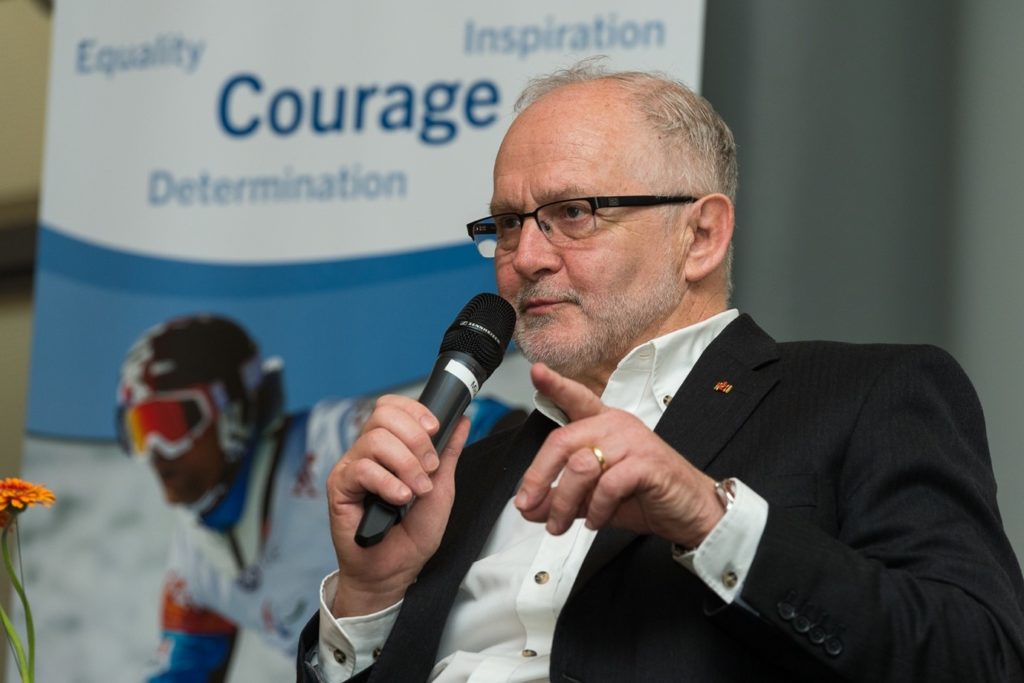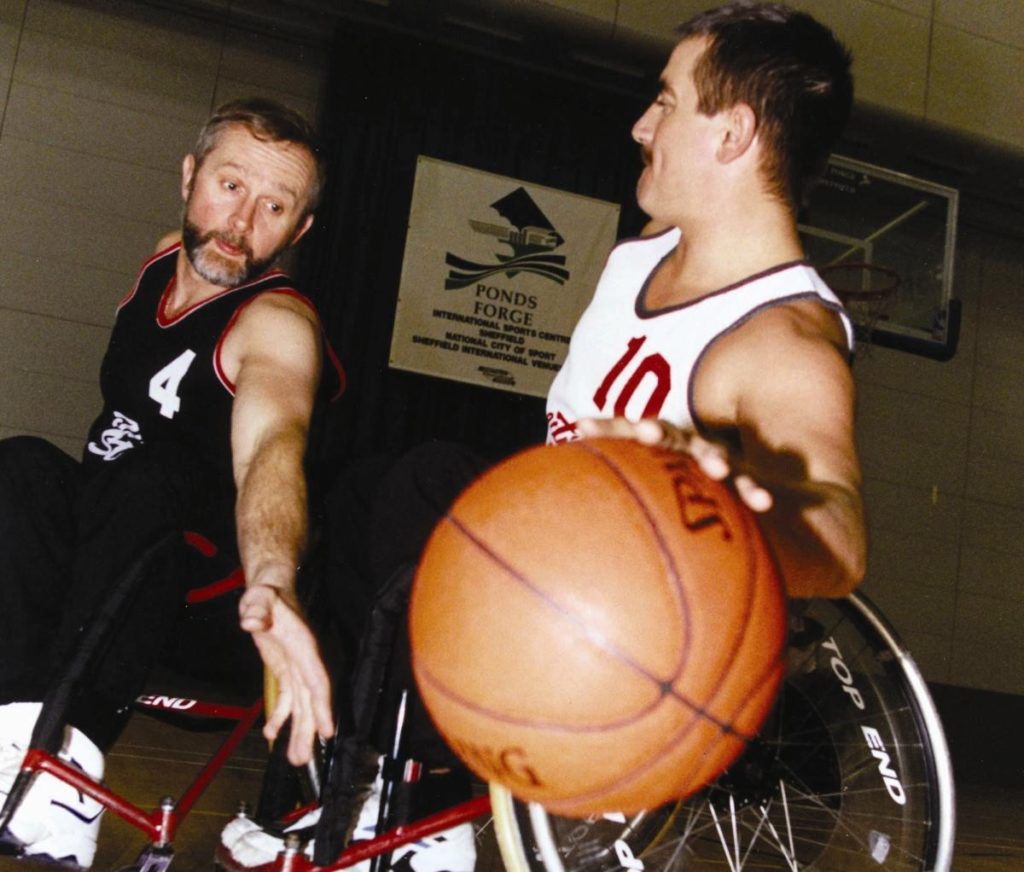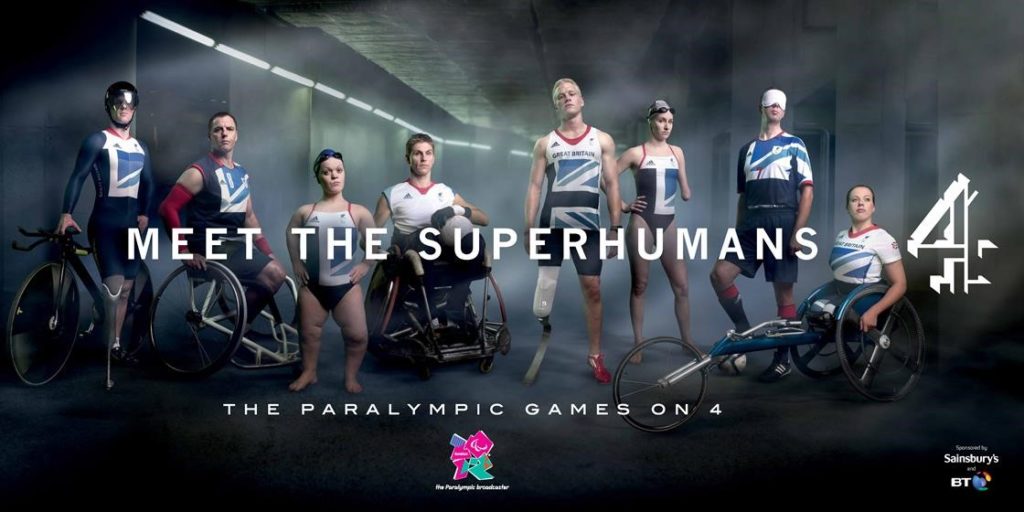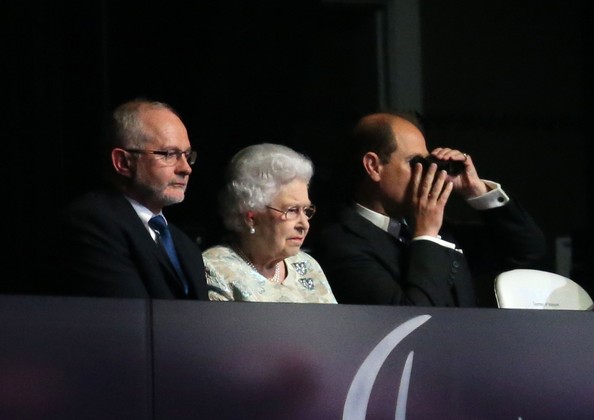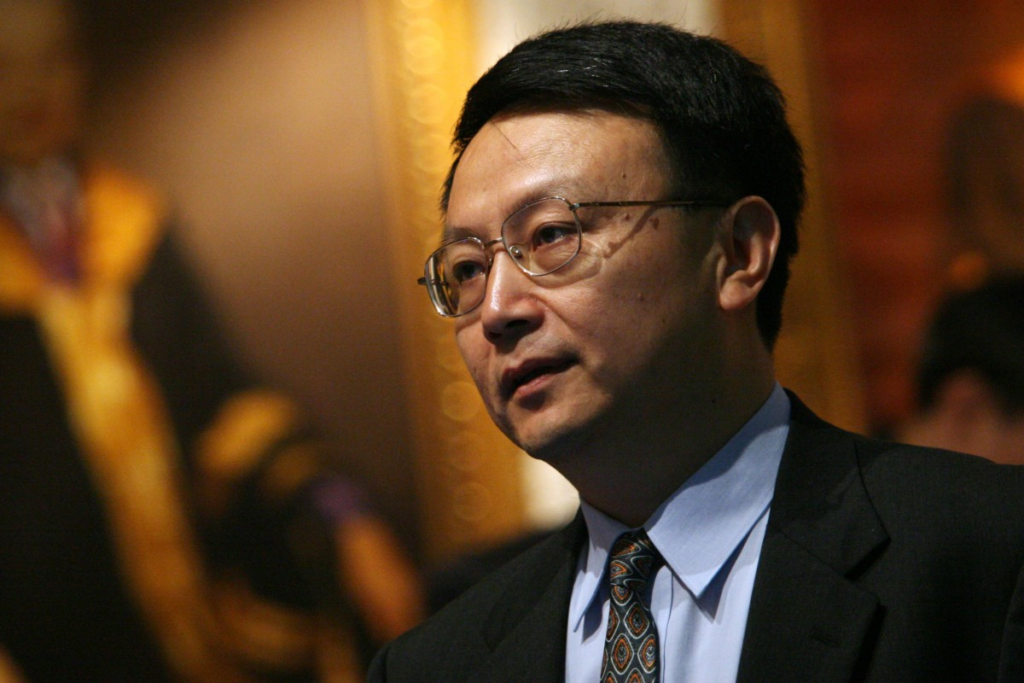by Timothy Moots

The first part of his interview explored the start of Sir Philip Craven’s life, from an athlete to sport’s leader, and the road to the London Olympic and Paralympic Games in 2012. In part II, we discussed the Russian doping scandal that culminated at the Rio 2016 Games, to current affairs and world leadership today.
Rio 2016: Russian ‘medals over morals’
Philip had good working relations with the Russians and their national sport committees. Prior to the Sochi Winter Games, he had been awarded the Russian Order of Friendship 2009 during his work with the Russian Paralympic Committee. At Sochi, Philip recalls how the Games were a great success, and also delved into the inside politics of the organising committee. ‘The person who was really running the show at Sochi was Putin’s key man, Deputy Prime Minister Dmitry Kozak, who is in fact a Ukrainian. He differed from Putin’s inner circle, who are all from St Petersburg.’ In his Closing Ceremony speech, Philip made reference to the progress Russia had made since their 1980 memo. ‘Now we are in a different time and things have changed. I wasn’t being critical. But it was made in the main stadium, to Putin and his inner circle.’ A week later, Philip was whisked back to Moscow for the Order of Honour in the Kremlin.
However, fast forward to the 18 July 2016, and two things came to the IPC’s attention on the same day. The first was on a conference call where the Rio Organising Committee said there was no money left for the Paralympics, it had all been spent on the Olympics. The second was the unfolding of the massive Russian state-sponsored doping scandal, that included athletes from the Olympics and Paralympics, many of whom were due to compete at the upcoming Games.
When the information first came out, Philip travelled to Rio for the Olympics as an IOC member. On 3 August 2016 there was an IPC board meeting, held virtually in the Bonn offices. ‘The Russian Paralympic Committee were called to give their side of the story, and the meeting lasted more than three hours, accompanied by lawyers.’ The Board reconvened again on the 5 August. For Philip, ‘this was the critical meeting where the IPC board took its unanimous decision that the Russian Paralympic Committee would be suspended immediately and thus the Russian para-athletes could not compete at the Rio Paralympic Games. They had contravened the basic principle of sport, fair play. And this wasn’t just me. It was most gratifying for me as President to see that every board member backed that decision. It gave me great strength.’
This was different to the International Olympic Committee. While the IPC instigated a blanket ban on the Russian athletes competing in the Paralympics, the International Olympic Committee had already decided, six days after the publication of the McLaren Report, this was a decision they would not be taking.
But was pressure applied on the International Paralympic Committee to not pursue a blanket ban? ‘Pressure was applied before the final vote was taken on the 5 and announced on the 7 August. And on the morning on the 7th before the press conference. Because of the unanimous support of the IPC board these efforts to change the IPC’s united position had no chance of success.’
The IPC’s decision was televised on the 7 August 2016. As Philip stated in the press conference, ‘the Russian government has catastrophically failed its Para athletes. Their medals over morals disgusts me.’ This was a decision not expected in Russia. Philip recalls how the Russian Minister of Sport Vitaly Mutko stated, ‘out of a clear blue sky came the IPC.’ For many, the decision taken by Sir Philip and the IPC showed the seriousness of the movement. Philip spent a lot of time in Rio meeting various national sports ministers after this announcement. What were their reactions to the IPC decision? He remarked that the majority were: ‘Thank God you’ve done that.’ This is how the world saw the IPC’s decision.
But in Philip’s opinion, why did the Russians compromise the principle of fair play? ‘National prestige wins out over sports integrity. But now we know that national prestige has suffered a heck of a hammering because of the original decision. If you do it illegally and against the spirit of sport, it doesn’t work out for you.’
Despite the controversy, the Russian state-sponsored doping scandal was not the biggest hurdle to the Paralympic Games. As Netflix’s Rising Phoenix examines, the biggest controversy turned out to be the Rio Organising Committee spending the pot saved for the Paralympics on the Olympics. ‘Let’s not think that all of Brazil was not good at organising the games, thank god they were! The fantastic Brazilian and non-Brazilian employees and volunteers, the international federations, and national committees all stepped up to the plate. It was just a poor decision made at the very top of the Rio Organising Committee that led to all the trouble”. As the documentary explores, and I urge you to watch, the Rio 2016 Games turned out to be a major success, the ‘People’s Games,’ as Sir Philip named them.
As Jonnie Peacock, the English sprint runner who won gold at the 100m T44 final in 10.90 seconds recalled, ‘the largest amount of people who went into the Olympic Park was not during the Olympics… it was during the Paralympics.’
Leadership today: ‘Paralympians don’t worry about what doesn’t work, they maximise what does.’
In 2017, Philip stood down as President of the IPC, having seen out his maximum four term limits. As a leader in his field on the world stage, it would be a missed opportunity if I did not turn the conversation to topics such as world leadership and the delayed Tokyo Games.
First, to his tenure at the IPC. Throughout our interview, teamwork is a core principle of Philip’s life and his career. He formed a great team with his wife Jocelyne, as he tells me ‘teams start with two.’ Also at the IPC, he developed this team of two with CEO, Xavier Gonzalez. ‘If the President and the CEO don’t click, then you can forget it.’ So, when I asked Philip what was he most proud of, he introduced his answer with the theme of teamwork, referencing the Rio Games. ‘There was no money left at Rio. The top of the IPC - Xavier, Andrew Parsons (then Vice-President at the IPC) and myself - had to sort out this major problem which was a total lack of money – otherwise, the Games would not take place. I was involved at the highest level with the federal government of Brazil in finding additional funding. However, not only had the organising committee spent all our money, but Brazil was going through political instability with the impeachment of the President of Brazil. So, we had to deal with a government that was in crisis mode. But what I had was an effective team, and we could all trust each other to pursue the tasks we had been assigned. Andrew Parsons with his knowledge both of the Brazilian political steam and its judicial structure was able to free up the transfer of the additional funding finally to both the IPC and the organising committee. Over the fifteen years that I had been president I had always strived to unite the movement, which it definitely wasn’t in 2001. The manner in which National Paralympic Committees, and the manner in which the Paralympic sports united with the IPC board and staff to ensure the success of the games along with a highly competent organising committee at the middle management and below level, filled me with great pride. When I left as president, I was aware we had reached that unity.’
As discussed in Part 1, Philip talked about one of the biggest challenges at the start of his presidency. Financially, this was the lack of money in the IPC coffers and sponsorship. I asked Philip if governments and large companies see the Paralympics as a platform to show off innovation and technological advantage to the world. He told me that as president, he wanted to attract partners because of the way the Paralympics projected sport. His intention was to build a foundation of what the IPC was as an organisation, and then attract others to ‘come together with likeminded ideas.’ However, building a brand takes time. It was only really during his second term 2005-2009, when the Paralympics started to attract commercial partners. But for Philip, he states ‘I think its deeper than that. I think some of the companies that are partners with the IPC see it far more that there is a great fit between the ethics and the principles of their company with the ethics and principles of the IPC. They are here as a company, not to just maximise the highest price they can possibly gain from that product they are producing but have thought about the products that society requires. They feel deep down that they have this partnership built on trust and on principles between the two organisations. That’s how I feel with several of the companies I have been involved with and getting them on board with the IPC. The bottom line is the Paralympics are definitely a platform for companies to show what they are about and what products they produce, but it is definitely important that they have aligned with the IPC to show how they desire to contribute to the betterment of society.’
The unity built over the last fifteen years and seen in Rio is essential in setting up the next Paralympic Games in Tokyo. The Games were originally supposed to have taken place on 24 July 2020, but because of the coronavirus outbreak, they were pushed back to 2021. The hosting of the Games is an important challenge for Japan, especially for the new Japanese Prime Minister Yoshihide Suga. As seen in Suga’s address to the United Nations, Suga stated his determination to host the Tokyo Olympic and Paralympic Games, putting it at the top of his agenda. I asked Philip what he thought were the biggest challenges in getting the Games going. ‘Well you have securing everything and keeping it available for the further year, this includes the training facilities and the same accommodation but also keeping on the organising committee for another year of employment. But then you have the massive question; can it take place anyway? It’s not going to be easy. But I firmly believe the Japanese organisers and the Japanese people deserve every effort from all over the world as these games deserve to take place and they need all the support we can give them.’
Next, we talked about how society can help further develop and support the movement. For Philip, we all had a part to play. He stated how not only governments but everyone should ‘work far harder with our national Paralympic committees and their national governments and show that there is a different way than just caring for people with impairments. We must through positive energy encourage as many people as possible to care for themselves. Through the vehicle of practising sport to a far more fulfilled life. They don’t have to be permanently involved in sport, but it gives them that self-confidence to get into the world and do what they do. We’re about showing the way to a far more active future. You make do with what is left and that is a hell a lot of stuff.’ Philip shared with me the game-changing advice he received from Donna Ritchie, the Aussie captain of the women’s wheelchair basketball team, in Sydney 2000. She said: ‘you maximise with what you’ve got, you don’t worry about what you haven’t got.’
With a wealth of leadership experience, I took the opportunity to ask Philip to reflect on what he thinks of world leaders today. ‘We don’t see much true leadership out there. There is no good in saying there is bad leadership. Leadership can’t be bad. If it’s bad, then that individual or group is not leading. One thing that struck me during COVID-19 is how women have demonstrated that they are far greater at leading than men, who have been incompetent. They’ve got the nation at their heart. We’ve seen women take the lead with the early decisions that have turned out to be right, whereas we’ve seen men mess around, these men who are supposed leaders, but rather have got rid of any competence within their team so they can have people follow their supposed lead. And what you end up with is the second or third raters.’
And what advice would he give aspiring leaders today? ‘Follow your spirit, follow your passion. Don’t let anybody deter you from your feeling for your freedom of thought and your freedom of action within the constraints of what is right for human society. There are certain controlling factors that have to be there otherwise we would be getting nowhere. But believe in yourselves, have a basic principle, learn life skills, learn to get on with people. Positive energy is the greatest energy source in the world. If you’re positive and work with others you can move mountains, and don’t let anybody say that you can’t. And if you feel that you are being controlled unfairly, then fight it. Sometimes you have to be clever about it because the people you are fighting have a bigger arsenal than you have, but you have to be careful, pick the right time to assault the bastion of what’s wrong. You have to fight for the bigger future. What is key here is when the shit hits the fan, you stick together, you work things out from the inside out. Don’t leave the party and try and lead from the outside.’
Having stolen Philip’s morning from him, his wife enters the room. A great opportunity to ask my final question. How would his wife describe him? Jocelyne replied ‘he believes in what he is doing and he does what he believes. He sticks to it and it doesn’t matter what people say to him—trust me. He will carry on.’
Philip breathes a sigh of relief.
Timothy Moots is a Senior Editor at Strife and a PhD Candidate at the Department of War Studies, King’s College London. The author would like to thank Chris McBride for his continued friendship and support in reviewing his work.
